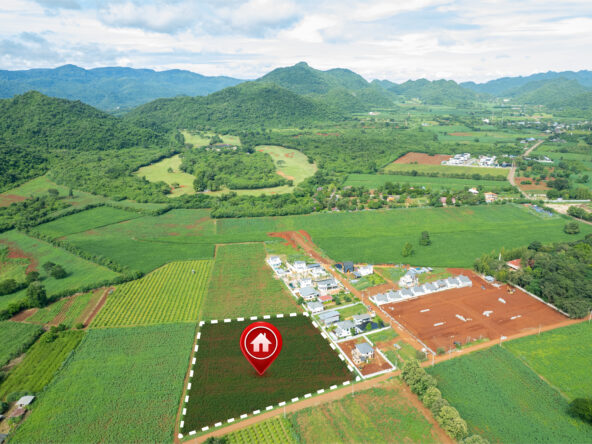Introduction
In an era marked by rapid technological advancements, urban landscapes are evolving into smart cities, leveraging innovation to enhance the quality of life for residents. At the heart of this transformation lies strategic land investment, a crucial factor in shaping the cities of the future. In this blog post, we’ll delve into the concept of smart cities, explore the rise of urban development initiatives, and dissect the role of land investment in this transformative process.
The Rise of Smart Cities
Overview of Smart City Concepts
Smart cities are not just urban areas; they are hubs of innovation and efficiency, harnessing technology to create sustainable and connected environments. The integration of the Internet of Things (IoT), artificial intelligence (AI), and big data analytics defines the core of smart city concepts. These cities prioritize efficient resource management, improved public services, and enhanced citizen well-being.
Examples of Successful Smart City Initiatives
Several cities around the world have embraced the smart city model, showcasing the potential of urban development fueled by technology. Singapore, often hailed as a smart city pioneer, has seamlessly integrated technology into daily life, from smart traffic management to sustainable energy solutions. Barcelona’s use of IoT has transformed the city into a living laboratory, while Songdo in South Korea is a purpose-built smart city that prioritizes connectivity and sustainability.
The Importance of Strategic Land Investment
Land as a Finite Resource
As urban populations continue to grow, the availability of land becomes increasingly limited. Strategic land investment is crucial in optimizing land use, ensuring that it aligns with the goals of sustainable urban development. Investing in the right parcels of land allows for the creation of well-designed, connected, and environmentally conscious urban spaces.
Impact of Land Use on Urban Planning
Land use is intrinsically tied to the success of urban planning initiatives. Thoughtful consideration of how land is utilized can result in the creation of mixed-use spaces, efficient transportation networks, and green infrastructure. Public and private sectors must collaborate to ensure that land investments contribute to the overall well-being of the community, fostering economic growth and social harmony.
Role of Private and Public Sector in Land Investment
The synergy between the private and public sectors is vital in driving successful land investments. While the private sector brings innovation and capital, the public sector plays a crucial role in regulatory frameworks and ensuring that developments align with broader societal goals. Public-private partnerships (PPPs) have emerged as effective models for funding and executing large-scale urban development projects.
Key Factors Driving Smart City Development
Technological Advancements
The evolution of technology serves as a catalyst for smart city development. The Internet of Things (IoT) allows for the interconnectivity of devices, enabling efficient data collection and analysis. Artificial intelligence (AI) enhances decision-making processes, while big data analytics provides valuable insights into urban trends. These technological advancements form the backbone of smart city infrastructure, influencing everything from transportation to energy management.
Environmental Sustainability
Smart cities prioritize sustainability, seeking to minimize their environmental impact and maximize resource efficiency. From green building designs to renewable energy solutions, these cities aim to create a harmonious balance between urbanization and nature. Land investments that support eco-friendly initiatives contribute to the overall resilience of smart cities, ensuring a sustainable future for generations to come.
Economic and Social Factors
The economic and social factors influencing smart city development are multifaceted. Economic growth is often a driving force behind urbanization, with cities serving as hubs for innovation and commerce. However, the benefits of this growth must be inclusive, addressing social equity and ensuring that all segments of the population enjoy an improved quality of life. Land investments that prioritize social infrastructure, affordable housing, and inclusive spaces contribute to the holistic development of smart cities.
Case Studies: Successful Land Investments in Smart Cities
Real-world Examples of Smart Land Investments
Redevelopment Projects
Cities undergoing redevelopment often present unique opportunities for smart land investments. The revitalization of underutilized or abandoned areas can breathe new life into urban spaces. A prime example is the High Line in New York City, a former elevated railway converted into a linear park. This innovative project not only preserved a historic structure but also became a symbol of sustainable urban development.
Infrastructure Investments
Investments in smart infrastructure are key components of successful land development. The city of Copenhagen, for instance, invested in cycling infrastructure, transforming itself into one of the most bike-friendly cities globally. Such initiatives not only improve transportation but also contribute to a healthier and more sustainable urban environment.
Public-Private Partnerships
Public-private partnerships have played a pivotal role in financing and executing smart city projects. Toronto’s Quayside development, a collaboration between Alphabet’s Sidewalk Labs and Waterfront Toronto, exemplifies the power of such partnerships. The project aims to create a connected neighborhood, leveraging data and technology to enhance urban living.
Challenges and Considerations
Regulatory and Legal Framework
The regulatory landscape significantly influences land investments in smart cities. Ambiguous or outdated regulations can hinder innovation and slow down the pace of development. Striking the right balance between fostering innovation and ensuring responsible urban growth requires a dynamic and adaptive legal framework.
Privacy and Security Concerns
The collection and utilization of data in smart cities raise legitimate concerns about privacy and security. Striking the right balance between leveraging data for urban efficiency and protecting individual privacy is a delicate challenge. Land investments must consider these ethical dimensions, ensuring that technological advancements do not compromise the rights and freedoms of citizens.
Community Engagement and Inclusivity
The success of smart city initiatives hinges on the engagement and acceptance of the local community. Inclusivity in the planning and decision-making processes is essential to address the diverse needs of the population. Land investments that prioritize community input foster a sense of ownership and contribute to the long-term sustainability of smart city developments.
Future Trends in Land Investment for Smart Cities
Emerging Technologies
As technology continues to evolve, new possibilities for smart city development emerge. Edge computing, 5G connectivity, and advancements in sensor technologies are poised to revolutionize the way cities function. Land investments that align with these emerging technologies position themselves at the forefront of urban innovation.
Innovative Financing Models
The traditional models of financing urban development are evolving. Crowdfunding, impact investing, and green bonds are becoming viable options for funding smart city projects. Land investors exploring these innovative financing models can unlock new avenues for sustainable and socially responsible development.
Global Collaborations and Knowledge Sharing
The challenges faced by smart cities are often shared across borders. Global collaborations and knowledge sharing can accelerate the development of best practices and solutions. Land investors and urban planners should actively participate in international forums to exchange ideas and lessons learned, fostering a collective effort toward sustainable urban development.
Conclusion
In conclusion, the future of urban development lies at the intersection of land investment and smart city initiatives. As technology continues to reshape our cities, strategic land investments become pivotal in creating sustainable, efficient, and inclusive urban spaces. Balancing economic growth with social and environmental considerations, navigating regulatory challenges, and embracing emerging technologies will define the success of land investments in shaping the cities of tomorrow. By actively participating in the evolution of smart cities, land investors contribute not only to their portfolios but also to the creation of vibrant and resilient communities that stand the test of time. The journey towards the future of urban development has just begun, and the role of land investment is more critical than ever.




